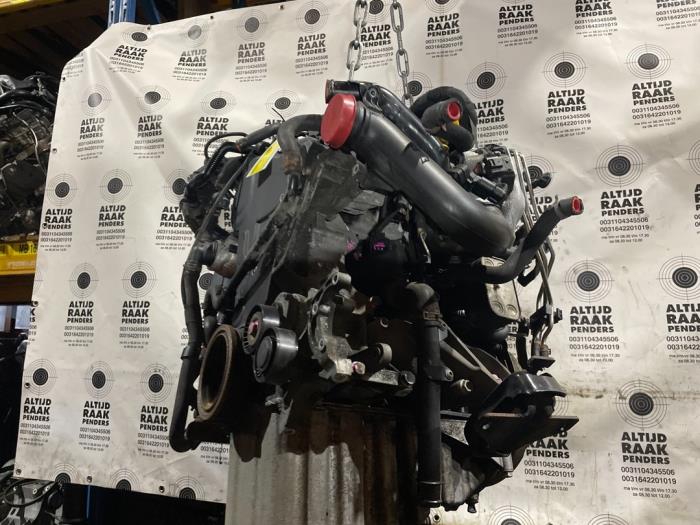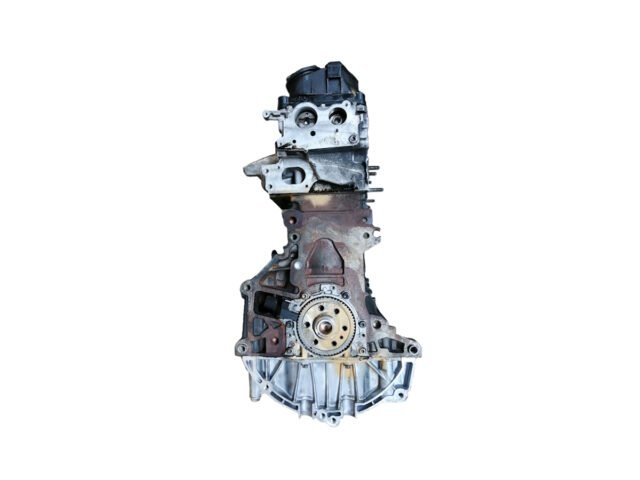Your Ultimate Resource for Amarok Engine for Sale-- Reputable Engines for each Need
Your Ultimate Resource for Amarok Engine for Sale-- Reputable Engines for each Need
Blog Article
Important Considerations and Tips for Choosing the Right Engine for Your Demands
Selecting the right engine is a complex choice that requires careful factor to consider of different variables to guarantee optimal performance for your particular requirements. The ins and outs of engine selection prolong beyond these basics, prompting a more detailed examination of essential components that can inevitably influence your fulfillment and success.
Determine Your Function
Determining your objective is a vital very first step in selecting the ideal engine for your needs. Recognizing the particular application you desire will lead your decision-making process and make certain that you select an engine that straightens with your operational demands. Whether you need an engine for an industrial lorry, industrial machinery, or an entertainment project, each circumstance demands different efficiency characteristics and abilities.
Consider the atmosphere in which the engine will run. Will it be subjected to heavy tons, severe temperatures, or extended usage? Evaluating these variables will certainly assist you identify the required power result, gas efficiency, and longevity needed to satisfy your goals.
In addition, consider the long-term ramifications of your option. Budget plan restraints, upkeep needs, and schedule of components are essential considerations that will impact your overall satisfaction and operational efficiency.
Ultimately, expressing your purpose will streamline the selection process and encourage you to make an educated choice. By plainly defining your objectives, you can evaluate possible engines better and select one that not only meets your current demands yet likewise supports your future objectives.
Evaluate Engine Requirements
When you have plainly expressed your function, the next action is to examine engine specs. This process includes a complete assessment of different technical information that can considerably impact efficiency and suitability for your intended usage.
Begin by analyzing the engine's horse power and torque ratings. Horse power is crucial for establishing the engine's capacity to carry out job, while torque is vital for understanding just how well it can deal with heavy lots or acceleration. Additionally, think about the engine displacement, as it usually correlates with power result and efficiency.
Following, examine the engine typeâEUR" whether it is a fuel, diesel, or alternative gas engineâEUR" as each type has unique characteristics and applications. Pay interest to the engine's arrangement (e.g., inline, V-type), as this can impact size, weight, and total performance.
An additional vital element is the engine's air conditioning system, which can influence dependability and upkeep requirements. Finally, evaluate the supplier's credibility and service warranty offerings, as these can provide insights right into lasting performance and support. Extensively evaluating these specs will certainly aid make sure that you select an engine that lines up with your certain demands and functional goals.
Take Into Consideration Gas Performance
Gas efficiency is an important variable to take into consideration when picking an engine, as it straight impacts operational costs and ecological sustainability. An engine's gas performance is typically measured in miles per gallon (MPG) for cars or in particular fuel usage (SFC) for aircraft and marine engines. Higher fuel performance not just lowers the quantity of gas taken in however likewise reduces greenhouse gas emissions, making it a responsible choice for eco-conscious consumers.
When assessing engine options, it is important to evaluate the driving conditions and planned usage. Engines enhanced for highway driving may show far better fuel efficiency compared to those designed for stop-and-go traffic. In addition, think about the engine's innovation, such as turbocharging or hybrid systems, which can significantly boost gas efficiency.

Assess Maintenance Demands

Some engines might call for more regular oil modifications, filter substitutes, or specialized maintenance, which can impact why not try this out your operational downtime. Engines with extensive appeal typically have better parts accessibility, lowering lead times throughout repairs.
Another vital facet is the technological knowledge needed for upkeep. Some engines might demand specialized training for specialists, which might limit your choices for service suppliers. Moreover, examine whether the engine's layout enables very easy accessibility to parts usually requiring Full Report upkeep, as this can considerably influence labor prices.
Spending Plan Your Financial Investment
Recognizing upkeep demands is just one facet of picking the ideal engine; monetary considerations play an equally crucial duty (amarok engine for sale). Developing a clear budget plan is essential, as it influences not just the preliminary purchase rate yet likewise long-term functional expenses
When budgeting, think about both the continuous expenses and ahead of time expenses such as fuel performance, maintenance, and possible repair services. A seemingly budget-friendly engine might sustain greater prices over time due to poor gas economic climate or frequent upkeep needs. Furthermore, evaluate the availability and cost of spare parts, as well as the service warranties supplied by manufacturers, which can provide financial defense against unforeseen costs.
It is additionally a good idea to variable in potential financing alternatives or renting arrangements, which could reduce instant financial problems. Balance your wish for see this website innovative features with your budget plan restraints, ensuring that you buy an engine that fulfills your performance needs without jeopardizing economic stability.
Eventually, a well-shaped budget will equip you to make enlightened decisions, aligning your engine selection with both your financial abilities and functional needs, leading to a more sustainable investment over time.

Conclusion
In final thought, picking the appropriate engine requires a detailed understanding of particular demands and applications. Cautious analysis of engine specifications, fuel effectiveness, and upkeep demands is essential for educated decision-making. Additionally, establishing an extensive budget plan makes certain that both ongoing and initial costs are manageable. By adhering to these people, companies and factors to consider can make a lasting financial investment that straightens with their functional objectives and performance assumptions, inevitably boosting total performance and efficiency.
Fuel performance is an essential aspect to think about when selecting an engine, as it straight affects operational costs and ecological sustainability. An engine's gas efficiency is typically measured in miles per gallon (MPG) for lorries or in particular fuel consumption (SFC) for airplane and marine engines. Diesel engines generally give much better fuel performance than gas engines. Ultimately, choosing an engine with a strong emphasis on fuel effectiveness can lead to substantial lasting cost savings and contribute favorably to environmental initiatives. Careful examination of engine specifications, gas effectiveness, and upkeep needs is crucial for notified decision-making.
Report this page